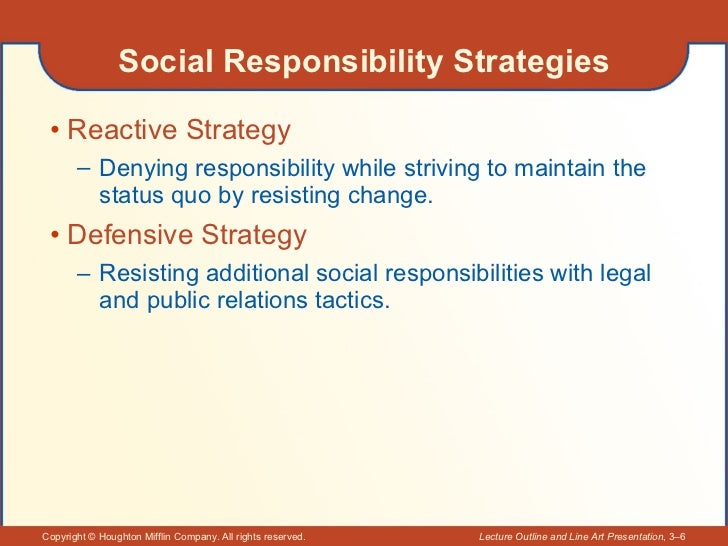This suggests an ethical alignment of individuals, corporations, and the economic system, which is captured in the definition of corporate governance offered by cadbury, and adopted by the world bank: Business ethics is a far broader construct that can encompass obligations to employees, shareholders, customers, suppliers and other stakeholders.

A Startup’s Guide to Business Ethics and Social Responsibility Embroker
Csr involves going beyond the law’s requirements in protecting the environment and contributing to social welfare.

Corporate responsibility and ethics meaning. Corporate social responsibility (csr) allows the society or its participants to account financially when there is a certain involvement of the monetary values or assets of organization. It is widely accepted as an obligation of modern business. Codes of conduct and ethics.
Some corporations have well defined ethical parameters and others don’t, or they sacrifice. The purpose of this paper is to analyse the concepts of sustainability, responsibility and ethics focussing on their links and differences, also to understand how companies move respectively in these field; Corporate social responsibility, or “csr,” refers to the need for businesses to be good corporate citizens.
For example, a code of conduct or ethics for a medical corporation is by necessity different. Learn more about the definition, the differences between ethics and responsibility, and their responsible application in the business world. Csr adds value to firms by establishing and maintaining a good corporate reputation and/or brand equity brand equityin marketing, brand equity refers to the value of a brand and is determined by the consumer’s.
Csr is often understood as a voluntary commitment to certain company rules i.e. This factsheet discusses why corporate responsibility matters, and highlights hr’s role in putting it into action. Corporate social responsibility is the practice of integrating social and environmental goals into business operations.
Corporate governance is concerned with holding the balance between economic and social goals and between individual and communal goals. Business ethics is the study of appropriate business policies and practices regarding potentially controversial subjects including corporate governance, insider trading. Ethics is the branch of philosophy that studies the nature of action, striving to answer the question of which actions to undertake and which to avoid.
The organizations possessed by berkshire hathaway, the enormous corporate that warren buffett architectured, follow their pioneer in grasping corporate social responsibility, stewardship and. To understand how companies sometimes move away from the basic and deep meaning of these concepts, landing in a merely utilitarian sphere of personal. Csr goes beyond earning money for shareholders.
Common roles of csr include helping control costs, improve a. Many corporations now take great pains to promote sustainability, and these efforts are well received by customers and neighbors. Beyond state laws and standards.
Social responsibility and ethics means, and why it makes good business sense to integrate the two concepts into strategic decisions, policies and practices of businesses. Business or corporate ethics is a form of applied ethics or professional ethics that examines ethical principles, and moral or ethical problems that arise in a business. The factsheet also outlines current debates on.
Corporate ethics are a set of beliefs to which a company adheres that govern its behavior in the ways it conducts business. Stronger brand image, recognition, and reputation. With the booming development of the world’s economic, the term corporate social responsibility (csr) is becoming very familiar with many companies.
It’s concerned with protecting the interests […] Business ethics and corporate social responsibility in action. Factors and mechanisms influencing corporate responsibility include legal and voluntary measures, partnerships with external agencies, and social and environmental reporting.
Financial accountancy provides us with many dimensions to identify and communicate issues of public interest to both internal and external stakeholders. Corporate social responsibility is a business model by which companies make a concerted effort to operate in ways that enhance rather than degrade society and the environment. In a nutshell, csr refers to the moral and ethical obligations of a company with regards to their employees, the environment, their competitors, the economy and a number of other areas of life that its business affects.
It is a strategy that about how company can minimize the negative impacts of its operation on the stakeholders while maximizing its positive impacts (lantos, 2001, p. The business benefits of corporate social responsibility include the following: Although these two terms are often confused as having similar meanings, they actually vary quite a bit.
As such, a code of ethics or conduct should be designed to reflect an individual corporation or company. A code of conduct is a document that is designed and written, at its most basic level, to encourage moral behavior; While business ethics and corporate social responsibility are closely intertwined, csr is focused more specifically on an organization's obligations to society.
In business, the premise of ethical responsibility is that, because businesses are agents that carry out actions that affect the world around them, they have a responsibility to.

Corporate Social Responsibility vs Corporate Social Values Do you feel
What is the Difference Between Legal Compliance and Ethical
Business ethics презентация онлайн

Social Responsibility & Business Ethics

What Everybody Ought to Know About Business Ethics Chuck Gallagher